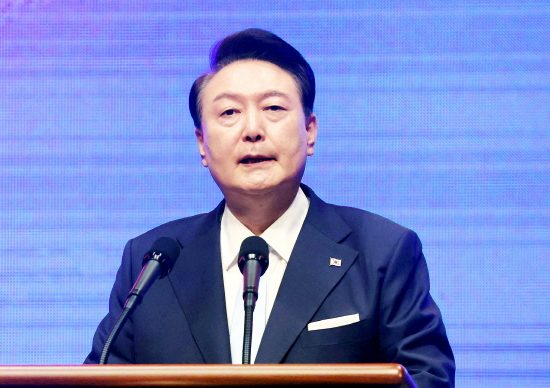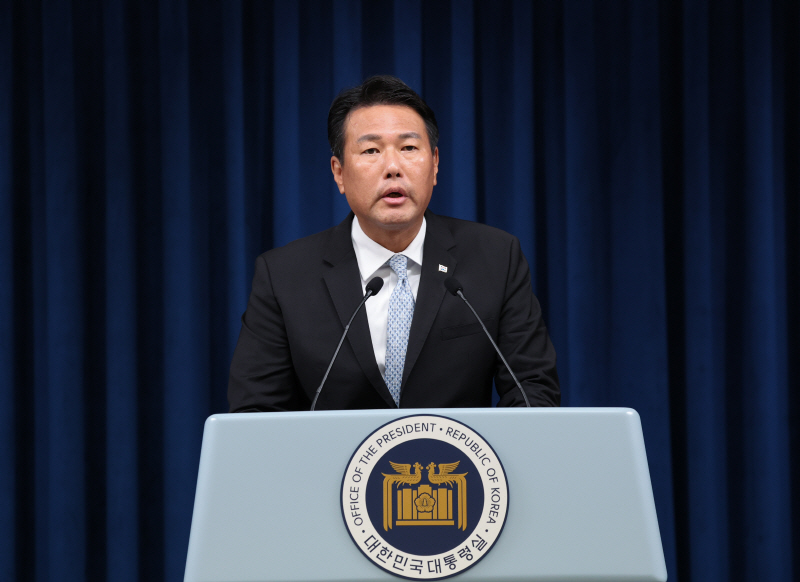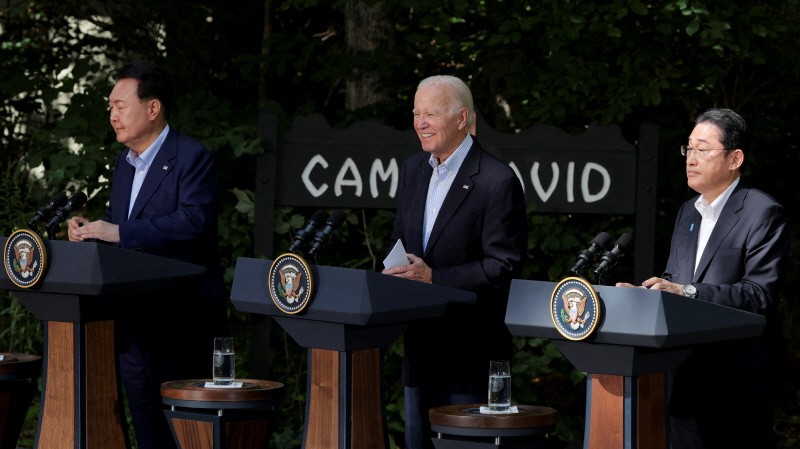On August 15, during the 79th National Liberation Day celebration, President Yoon Suk Yeol unveiled a new “3-3-7” unification doctrine.
This comprehensive framework outlines three key unification visions, three strategic approaches, and seven actionable plans to advance unification, even without North Korea’s cooperation. Notably, the doctrine includes specific initiatives like the establishment of a “North Korea Freedom and Human Rights Fund,” modeled after the U.S. National Endowment for Democracy (NED).
President Yoon emphasized that the future of a unified Korea lies in a nation where freedom and safety are guaranteed for its people, where creativity and innovation propel the nation forward, and where the country contributes to global peace and prosperity. He also outlined three unification strategies focused on South Korea, North Korea, and the international community to achieve this vision.

The seven unification plans encompass tasks the government must undertake despite the current cessation of inter-Korean exchanges. These plans include initiatives the government is committed to, can undertake, and wishes to pursue. A key highlight is the proposed “North Korea Freedom and Human Rights Fund,” which could financially support efforts to improve human rights in North Korea, including enhancing residents’ access to information.
The establishment of this fund is expected to play a role similar to the NED, founded by the U.S. Congress in 1983 to support efforts to improve human rights worldwide, including North Korea, through the dissemination of information by NGOs.
A government source noted that the fund is intended to mirror the NED’s role and address the National Assembly’s failure to establish a North Korean Human Rights Foundation as mandated by the 2016 North Korean Human Rights Act.
“Creating the fund would require coordination among related ministries and legal procedures,” said a senior government official. “However, the government plans to secure sufficient funding to support civil society activities aimed at promoting human rights in North Korea.”

Since last year, the Ministry of Unification has provided approximately 1.8 billion won ($1.3 million) in subsidies to NGOs and institutions working to improve human rights in North Korea. Experts suggest that such projects could expand in scope and organization, although ensuring the fund’s continuity across different administrations remains a challenge.
A presidential office spokesperson stated that the “North Korea Freedom and Human Rights Fund” aims to systematically support civil society activities focused on North Korean freedom and human rights. The spokesperson added that the government intends to collaborate with civil society to enhance various broadcasting activities targeting North Korea, making them more diverse and engaging.
In addition, President Yoon proposed the creation of an “International Korean Peninsula Forum” to build international consensus on unification. He stressed the importance of spreading the belief that a unified Korea will contribute to global peace and prosperity.
Professor Park Won-gon of Ewha Womans University’s Department of North Korean Studies commented on the proposal, noting that the trilateral summit between South Korea, the United States, and Japan last August at Camp David marked the first declaration of support for a “free and peaceful unification of the Korean Peninsula.”

“President Yoon’s proposal reflects a determination to expand international support for unification through initiatives like the International Korean Peninsula Forum and North Korean Human Rights International Conference,” Park added.
President Yoon also reaffirmed South Korea’s commitment to providing humanitarian aid to North Korea, regardless of the political situation or inter-Korean relations.
“On August 1, we offered relief supplies for flood victims in North Korea, making clear that our government will never turn a blind eye to the North Korean people’s suffering,” Yoon said. “Even though the North Korean regime rejected our offer yet again, we will never stop making offers of humanitarian aid.”
Additionally, the seven unification plans include proposals for establishing an inter-Korean dialogue body, revitalizing unification programs, and incorporating the role of North Korean defectors into unification efforts.
BY YEONGGYO CHUNG, YOUNGNAM KIM [chung.yeonggyo@joongang.co.kr]




